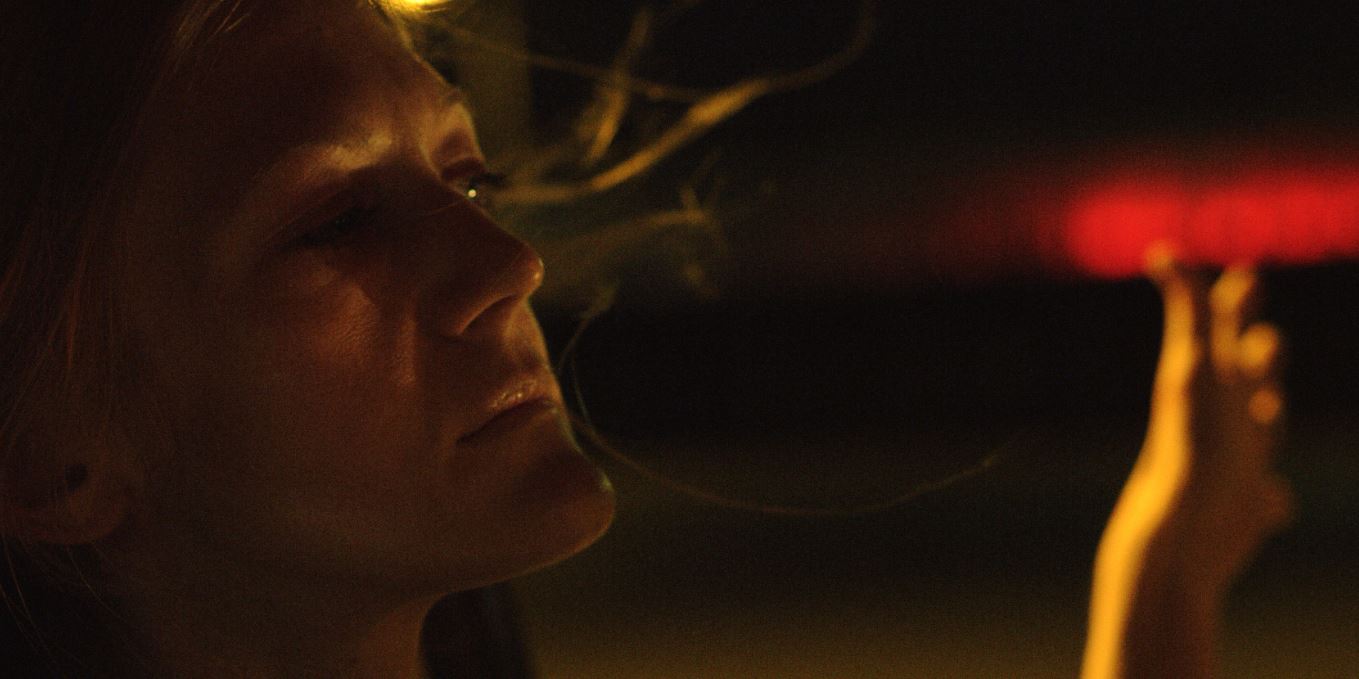
The Swerve is the striking — and strikingly depressing — feature debut from New Jersey-based director Dean Kapsalis, and it’s best appreciated as it was envisioned: as a suburban update on a classical Greek tragedy. While actions, and the catastrophic results of those actions, are often telegraphed well in advance, it plays out in such a bleak and uncompromising fashion that you’ll inevitably be left emotionally drained by the end. While some viewers may find the slow, occasionally ponderous, pacing to be a detriment, this portrait of a housewife’s steady mental decline proves to be a lovingly crafted and punishing affair.

And I don’t use the word “punishing” lightly; this isn’t a fun time at the movies. This is a brutal psychological study, aided greatly by a staggering performance by Azura Skye, whose purposefully uncomfortable presence dominates every frame. She plays Holly, a teacher and married mother of two who finds herself dealing with more than your typical ennui when she discovers and is bitten by a mouse who appears in her home. Her already strained relationship with her husband rapidly deteriorates, and her children are alternately snippy, coarse and thoroughly unpleasant. A chance meeting with a swerving vehicle sends her already delicate demeanor hurtling over the breaking point.
Lengthy scenes of mundane activities like peeling apples and buying groceries are buoyed by Mark Korven’s (The Witch, Cube) outstanding, jittery score, which does a wonderful job maintaining tension in the quieter moments and punctuating the few more overtly intense and frightening scenes. Cinematography from Daryl Pittman is moody without being showy, and effectively turns the seemingly idyllic residential home in which most of the film takes place into a shadowy prison. A rain-swept sex scene outside a bowling alley is a visual highlight, though mostly the visuals seem just as barely-restrained as the lead performance.

Those expecting straight up thrills might be disappointed by The Swerve, which is light on violence but high on slow burn psychological tension. I’ll admit to being a bit vexed at first by the film’s odd, deliberate pacing, with the first half feeling a bit like a stretched-to-the-breaking-point short film, but while I still think some lengthy supermarket sequences could use a trim, I’m impressed with Kapsalis’ patience and confidence in his script and performers.
Your enjoyment, if you can call it that, of the film might depend heavily on the effectiveness of the ending. I was left rattled, and whatever misgivings I had about the pacing were swept away as the tragic events inevitably unfold. Don’t watch this one if you’re feeling depressed, but if you’re looking to dissolve a good mood, it’s highly recommended.




